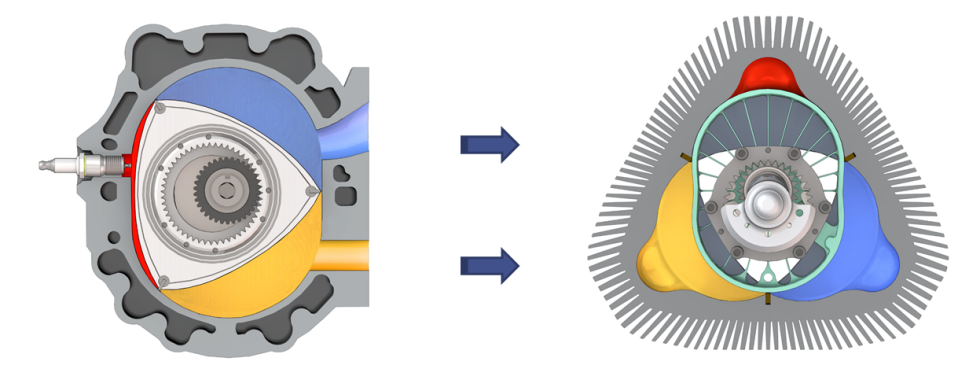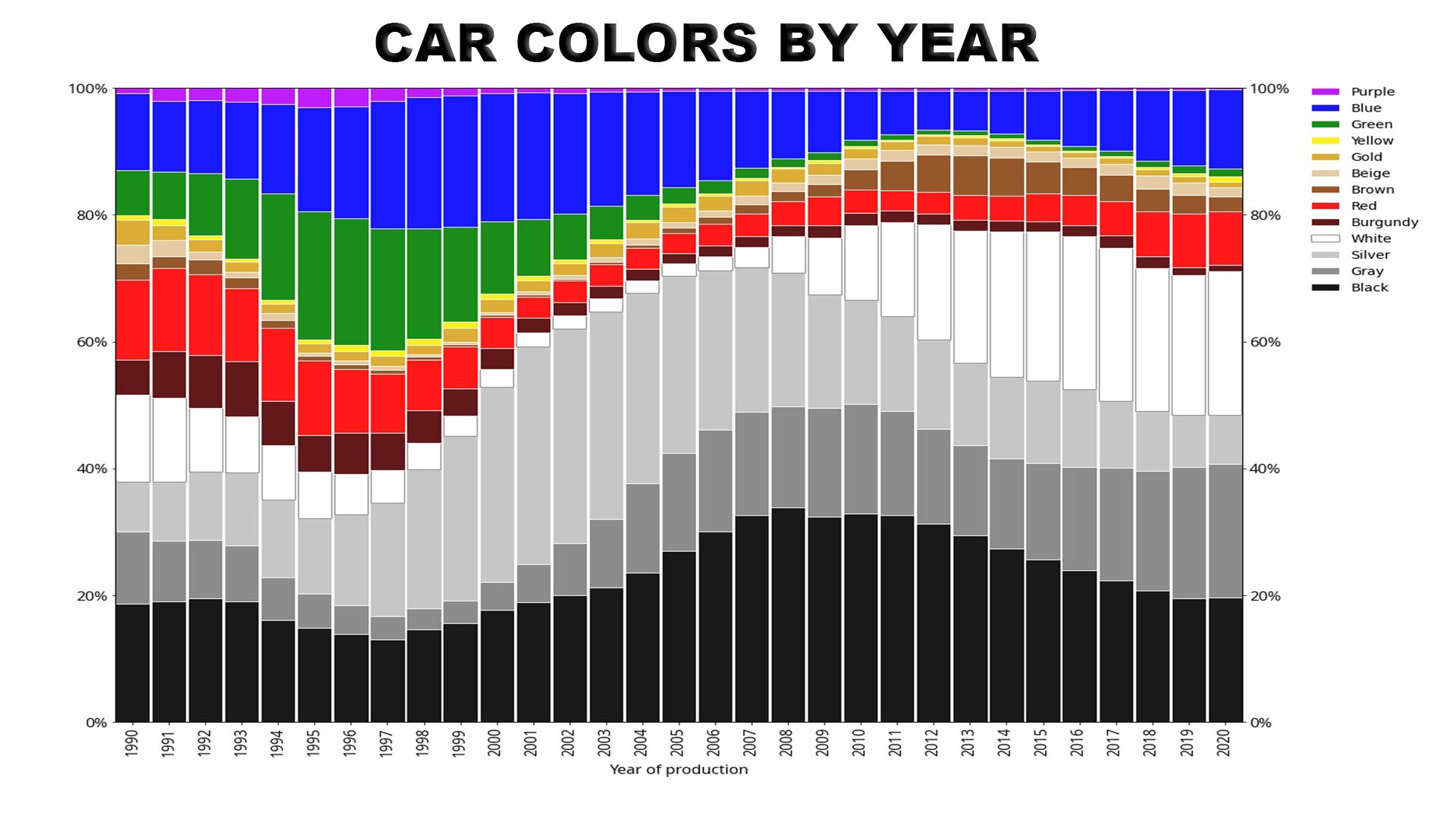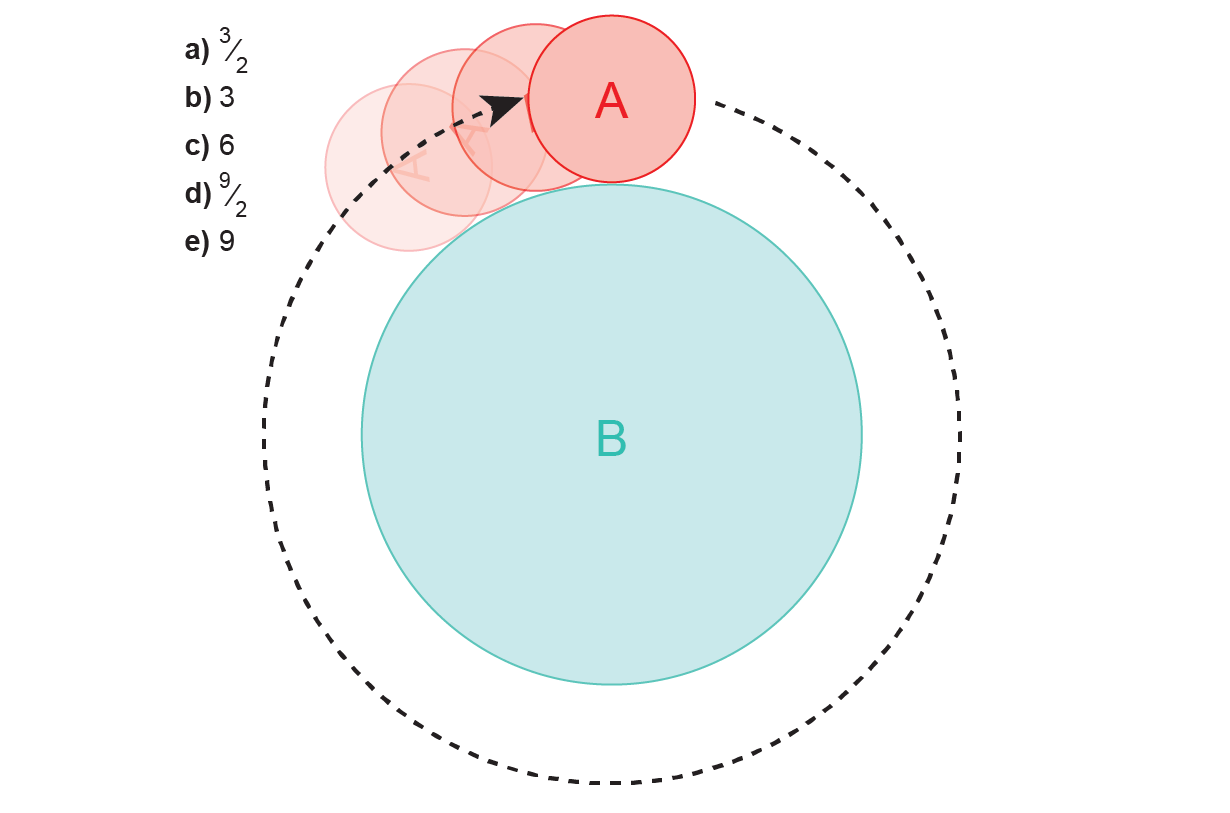Friday, December 29, 2023
?Shoddy Teslas
Thursday, December 28, 2023
Wednesday, December 27, 2023
Big Lake
Tuesday, December 26, 2023
Bad Forensic Science
Quantum Computing Hype Vs. Reality
IEEE: "Quantum Computing's Hard, Cold Reality Check"
The quantum computer revolution may be further off and more limited than many have been led to believe. That’s the message coming from a small but vocal set of prominent skeptics in and around the emerging quantum computing industry...
Monday, December 25, 2023
Friday, December 22, 2023
Thursday, December 21, 2023
Wednesday, December 20, 2023
Foldable Laptop Review
New Crystal Structures Discovered With AI
Tuesday, December 19, 2023
Criminals Complaining To Federal Regulators
"Ransomware gang files SEC complaint over victim's undisclosed breach":
The ALPHV/BlackCat ransomware operation has taken extortion to a new level by filing a U.S. Securities and Exchange Commission complaint against one of their alleged victims for not complying with the four-day rule to disclose a cyberattack.
(Presumably, this puts more pressure on the victim to pay up.)
Monday, December 18, 2023
Hypersonic Engine
Neuromorphic Supercomputer Update
Friday, December 15, 2023
Good Textbooks
Thursday, December 14, 2023
Wednesday, December 13, 2023
Tuesday, December 12, 2023
Quantum Computing Update
Monday, December 11, 2023
Oobleckn Physics
Friday, December 08, 2023
Thursday, December 07, 2023
Robotic Tentacles For Humans
AI Image Quiz
"Google Can't Catch All the AI Images. Can You?"
I only got 5/10 -- no better than flipping a coin!
Wednesday, December 06, 2023
AI Legislation
"Brazilian city enacts an ordinance that was secretly written by ChatGPT"
“If I had revealed it before, the proposal certainly wouldn't even have been taken to a vote,” [city councilman Ramiro] Rosário told the AP by phone on Thursday. The 36-member council approved it unanimously and the ordinance went into effect on Nov. 23.
“It would be unfair to the population to run the risk of the project not being approved simply because it was written by artificial intelligence,” he added...
Keeping the proposal's origin secret was intentional. Rosário told the AP his objective was not just to resolve a local issue, but also to spark a debate. He said he entered a 49-word prompt into ChatGPT and it returned the full draft proposal within seconds, including justifications.
Tuesday, December 05, 2023
LLM Guide
"Language Models: A Guide for the Perplexed"
Given the growing importance of AI literacy, we decided to write this tutorial to help narrow the gap between the discourse among those who study language models -- the core technology underlying ChatGPT and similar products -- and those who are intrigued and want to learn more about them...
Monday, December 04, 2023
AI Weed Puller
Friday, December 01, 2023
No Time
Thursday, November 30, 2023
Wednesday, November 29, 2023
Tuesday, November 28, 2023
Monster Waves
Monday, November 27, 2023
AI Self-Organization
Thursday, November 23, 2023
Thanksgiving Break
Admin note: Because of the US Thanksgiving holiday, GeekPress will take a short break.
Happy Thanksgiving, and we'll see you all next week!
Wednesday, November 22, 2023
Self-Driving Vehicle Update
"Autonomous Vehicles Lower Insurance Costs"
The insurance giant Swiss RE did a study comparing human drivers with Waymo autonomous vehicles in the same zip-codes and found that autonomous vehicles generated significantly fewer insurance claims...
Tuesday, November 21, 2023
AI Weather Forecaster
"Google DeepMind's weather AI can forecast extreme weather faster and more accurately"
GraphCast can also offer meteorologists accurate warnings, much earlier than standard models, of conditions such as extreme temperatures and the paths of cyclones. In September, GraphCast accurately predicted that Hurricane Lee would make landfall in Nova Scotia nine days in advance, says Rémi Lam, a staff research scientist at Google DeepMind. Traditional weather forecasting models pinpointed the hurricane to Nova Scotia only six days in advance.
Ninth Dedekind Number
Monday, November 20, 2023
Friday, November 17, 2023
Thursday, November 16, 2023
Wednesday, November 15, 2023
Tuesday, November 14, 2023
Animal Spots
Popular Culture And Revolutions
Monday, November 13, 2023
Friday, November 10, 2023
Thursday, November 09, 2023
Wednesday, November 08, 2023
Passkeys
"What the !#@% is a Passkey?"
A new login technique is becoming available in 2023: the passkey. The passkey promises to solve phishing and prevent password reuse. But lots of smart and security-oriented folks are confused about what exactly a passkey is. There’s a good reason for that. A passkey is in some sense one of two (or three) different things, depending on how it’s stored...
Tuesday, November 07, 2023
Silencing Doritos
"PepsiCo's Doritos brand creates technology to 'silence' its crunch". (Via A.B.)
Note: This is AI to selectively cancel the crunching sound over computer audio without altering the voices of people speaking. This does not change the nature Doritos snacks themselves. The person eating the Doritos still enjoys the same sound and feel of the crunch.)
Monday, November 06, 2023
Othello Solved
"Othello is Solved":
The game of Othello is one of the world's most complex and popular games that has yet to be computationally solved. Othello has roughly ten octodecillion (10 to the 58th power) possible game records and ten octillion (10 to the 28th power) possible game position. The challenge of solving Othello, determining the outcome of a game with no mistake made by either player, has long been a grand challenge in computer science. This paper announces a significant milestone: Othello is now solved, computationally proved that perfect play by both players lead to a draw. Strong Othello software has long been built using heuristically designed search techniques. Solving a game provides the solution which enables software to play the game perfectly.
(Via A.B.)
Friday, November 03, 2023
Thursday, November 02, 2023
High-Tech Child Tracking
"Why this mom uses an Apple AirTag on her 3-year-old daughter".
(Note: Shared as a FYI. I do not necessarily endorse this use of technology.)
Wednesday, November 01, 2023
Fighting Superbugs
"Superbugs including MRSA thwarted by unconventional vaccine".
"This is very different from developing new antibiotics," said Jun Yan, a doctoral student at Keck School of Medicine and the study's first author. "This is using our own immune system to fight against different superbugs, which is a different approach than everybody else."
Direct link to academic paper in Science Translational Medicine, "A protein-free vaccine stimulates innate immunity and protects against nosocomial pathogens".
Tuesday, October 31, 2023
Monday, October 30, 2023
Hsieh Forbes Column: Using Artificial Intelligence To Predict Individual Health Outcomes
British Robotic Dog
Friday, October 27, 2023
Text With Jesus App
There is now an AI LLM app that lets you "text with Jesus" and other noteworthy Biblical characters. (Via N.L.)
"Am I really talking to Jesus? Isn't this blasphemous?""What version of the Bible does the app use?"
"Can I really chat with Satan? Satan is included in the app to provide a comprehensive understanding of biblical narratives, reflecting the character's role as described in the Bible. However, interaction with Satan is turned off by default and must be manually enabled by the user if they choose to engage with this figure. The portrayal is rooted in Christian teachings, and users have full control over their engagement with all figures within the app."
Thursday, October 26, 2023
Birthday Present
Spotted online: "So I found a copy of The Fellowship of the Ring in a thrift store with the following inscription". (Via S.K.)
Wednesday, October 25, 2023
AI Propaganda Update
"Israel-Hamas War: This viral image of a baby trapped under rubble turned out to be fake
"When looking closely, it appears the baby has extra fingers. That’s because even though AI is getting better at creating human-like images, it still has trouble reproducing certain body parts, including hands and feet.
The Cube also found earlier posts of this AI-generated picture. It had already appeared on social media back in February 2023 after earthquakes hit Turkey and Syria.
Tuesday, October 24, 2023
Light Posting Notice
Monday, October 23, 2023
Techno-Optimist Manifesto
I agree with many of his points, although I'm not so sure about some of his so-called "Patron Saints".
Friday, October 20, 2023
New Hottest Pepper
"Pepper X marks the spot as South Carolina pepper expert scorches his own Guinness Book heat record":
Currie said when he first tried Pepper X, it did more than warm his heart.
“I was feeling the heat for three-and-a-half hours. Then the cramps came,” said Currie, one of only five people so far to eat a entire Pepper X. “Those cramps are horrible. I was laid out flat on a marble wall for approximately an hour in the rain, groaning in pain.”
Heat in peppers is measured in Scoville Heat Units. Zero is bland, and a regular jalapeno pepper registers about 5,000 units. A habanero, the record-holder about 25 years ago, typically tops 100,000. The Guinness Book of World Records lists the Carolina Reaper at 1.64 million units.
Pepper X’s record is an average of 2.69 million units. By comparison, pepper spray commonly holstered by police is around 1.6 million units. Bear spray advertises at 2.2 million units.
Space Gorilla
That time that astronaut Scott Kelly smuggled a full gorilla suit onto the International Space Station.
Here is his short video.
Needed a little humor to lighten up a #YearInSpace. Go big, or go home. I think I'll do both. #SpaceApehttps://t.co/Ift8VdDR4C
— Scott Kelly (@StationCDRKelly) February 23, 2016
Thursday, October 19, 2023
Wednesday, October 18, 2023
AI Text Detector Don't Work
"How can educators respond to students presenting AI-generated content as their own?"
Do AI detectors work? In short, no, not in our experience. Our research into detectors didn't show them to be reliable enough given that educators could be making judgments about students with potentially lasting consequences.
Tuesday, October 17, 2023
Sixth Basic Flavor?
"A New Flavor Frontier: Is Ammonium Our Sixth Basic Taste?"
Related article in Nature Communications: "The proton channel OTOP1 is a sensor for the taste of ammonium chloride"
Monday, October 16, 2023
Writing Scientific Grants With ChatGPT
Nature: "ChatGPT use shows that the grant-application system is broken"
A 2023 Nature survey of 1,600 researchers found that more than 25% use AI to help them write manuscripts and that more than 15% use the technology to help them write grant proposals.
Some people might see the use of ChatGPT in writing grant proposals as cheating, but it actually highlights a much bigger problem: what is the point of asking scientists to write documents that can be easily created with AI? What value are we adding? Perhaps it is time for funding bodies to rethink their application processes.
Bionic Hand Update
Friday, October 13, 2023
Fair Coin Flips
Thursday, October 12, 2023
Four Vs. Five
"Your brain finds it easy to size up four objects but not five -- here's why"
Now scientists have discovered why: the human brain uses one mechanism to assess four or fewer items and a different one for when there are five or more. The findings, obtained by recording the neuron activity of 17 human participants, settle a long-standing debate on how the brain estimates how many objects a person sees. The results were published in Nature Human Behaviour on 2 October.
Wednesday, October 11, 2023
Tuesday, October 10, 2023
Siri Name Woes
"iOS 17 forces woman named 'Siri' to change her name":
She got by when the wake word was “Hey Siri.” “I work in a gym with a lot of people around so everyone learned quite quickly not to say ‘Hey’ when they greet me or there would be a lot of bleeping going on,” she told The Sun.
Then iOS 17 came along so all that’s necessary to trigger an iPhone to start listening for spoken commands is the word Siri.
“Now people can’t even say my name,” said Siri Price in the interview.
The solution was to change her name. She now goes by Siz.
Monday, October 09, 2023
One Revolution Per Minute
Video: "One Revolution Per Minute" -- a short film by Erik Wernquist
ONE REVOLUTION PER MINUTE is a short film I made to explore my fascination with artificial gravity in space.
It takes place aboard the "SSPO Esperanta" - a planetary orbiter that spins around itself at a rate of one revolution per minute (1 RPM). With a radius of 450 meters, the spin generates artificial gravity with an effect of approximately 0.5 g along its main deck.
With the "Esperanta" I wanted to create a leisure-like environment, such as a hotel or cruise ship, and explore what the views could be like onboard when the orbiter visits some of the worlds in our solar system. I was also particularly interested in how light and shadows from the sun play around in the interior as it spins around.
(Via Transterrestrial Musings.)
Friday, October 06, 2023
Thursday, October 05, 2023
Wednesday, October 04, 2023
Academic Honesty
"Perhaps the best one-liner in a student paper this semester..."
Perhaps the best one-liner in a student paper this semester, "The analysis is severely limited by my lack of understanding of what I am doing." #humility
— Paul Shafer (@shaferpr) May 7, 2021
Tuesday, October 03, 2023
New Dictionary Words
The Merriam-Webster dictionary has added 690 new words for September 2023. I am especially pleased at these two from popular culture:
padawan noun, informal : a young person especially when regarded as naïve, inexperienced, etc.
cromulent adjective, informal + humorous : acceptable, satisfactory
Straight Line Sailing From India To US
Monday, October 02, 2023
Flying Car Update?
Friday, September 29, 2023
Early Detection Of Alzheimer's?
Wordle Cheats
"Many Wordle users cheat to win, says mathematics expert".
Direct link to academic article: "Wordle: A Microcosm of Life. Luck, Skill, Cheating, Loyalty, and Influence!"
Thursday, September 28, 2023
Wednesday, September 27, 2023
Hsieh Forbes Column: "Some Physicians Receive Thousands Of Dollars A Year From Drug Companies; Should You Be Concerned?"
My latest Forbes column is now out: "Some Physicians Receive Thousands Of Dollars A Year From Drug Companies; Should You Be Concerned?"
I discuss the federal Open Payments database which tabulates financial interactions between physicians and drug/medical device companies. I also discuss how patients should be cautious about interpreting what they learn about their doctors, and whether such payments constitute a conflict of interest.
Tuesday, September 26, 2023
Monday, September 25, 2023
Asteroid Collection
Atlanta Boot Girls
"Masked 'Boot Girls' Are Freeing Booted Cars All Over Atlanta".
Related story: "A ride with Boot Girls, 2 women challenging Atlanta's parking enforcement industry"
Friday, September 22, 2023
2023 Astronomy Photos
Thursday, September 21, 2023
Artificial Womb Update
Wednesday, September 20, 2023
Tuesday, September 19, 2023
Monday, September 18, 2023
Thursday, September 14, 2023
Wednesday, September 13, 2023
Tuesday, September 12, 2023
Monday, September 11, 2023
Thursday, September 07, 2023
Scissors Congruence
Wednesday, September 06, 2023
Tuesday, September 05, 2023
Monday, September 04, 2023
Friday, September 01, 2023
Protectionism 2.0
Thursday, August 31, 2023
Light Posting Notice
Lemon Juice And The Bank Robber
An awkward moment in US crime history:
McArthur Wheeler was not a good bank robber. On 19 April 1995, he raided two Pittsburgh banks, one after another, in broad daylight and without any disguise. The local police distributed security camera images and arrested McArthur in the early hours of the morning. 'But I wore the juice,' an incredulous Wheeler exclaimed when apprehended. He explained that knowing it worked as invisible ink, he had covered his face with lemon juice to make it invisible to the cameras.
Wednesday, August 30, 2023
Tuesday, August 29, 2023
Monday, August 28, 2023
Hsieh Forbes Column: "Dr. Robert Bartlett, The ‘Father Of ECMO’"
Friday, August 25, 2023
Tarantula Season
Colorado update: "Thousands of tarantulas will soon be crawling across this state"
Southeast Colorado is home to thousands of the creepy crawlers. Every year in August and September, the male tarantulas leave their burrows in masses and begin searching for a mate.
Scripps News Denver reports that the annual event is often mistaken as a migration because the spiders are more visible than normal and appear to be walking to a desired destination.
That desired destination, in this case, is a female tarantula's burrow, so the pair can breed.
Thursday, August 24, 2023
Microchipping Cheese
"Italian cheesemakers microchip parmesan in bid to fight copycats"
Their microchips are about the size of a grain of salt and have been inserted into the labels found on the rind of about 120,000 wheels of parmigiano reggiano. The chips work as scannable food tags with a QR code label.
In an e-mailed statement sent on Friday, Nicola Bertinelli, president of Consorzio Parmigiano Reggiano, told CBS News that "by being the first to incorporate these secure digital labels onto our cheese wheels, we can continue to ensure consumer safety."
Wednesday, August 23, 2023
Tagging = Communications
Downloading Wikipedia
"How To Download All of Wikipedia onto a USB Flash Drive"
This is fully legal, and is supported by Wikipedia. The full English language version Wikipedia is about 6 million pages (including images) and takes up less than 100 GB. Reasons you might want to do this (from the article):
Some reasons why you might want to download Wikipedia:
- Internet Connectivity Issues: In many parts of the world, stable and continuous internet access is not guaranteed. By downloading Wikipedia onto a flash drive, you can access the wealth of information it contains even without internet access.
- Remote Locations: For individuals traveling or living in remote areas, internet access might be limited or non-existent. Having a downloaded copy of Wikipedia could be incredibly useful for reference or research in such cases.
- Educational Use: Teachers or educational institutions in low-resource settings might not have consistent internet access. A downloaded version of Wikipedia can be an invaluable teaching and learning tool.
- Data Caps: Some users might have limited data plans. Offline access to Wikipedia would allow them to use the data for other online activities.
- Emergency Preparedness: In the event of a disaster or emergency situation where internet access is disrupted, a downloaded copy of Wikipedia could provide vital information.
- Speed and Efficiency: Accessing information from a local copy is generally faster than loading it from the internet, leading to improved efficiency especially if frequent referencing is needed.
- Research Purposes: For research purposes, a static version of Wikipedia might be needed to avoid changes to the content during the course of a long-term study.
- Privacy Concerns: Some users might prefer to use Wikipedia offline to avoid tracking or to maintain privacy.
- Developing Apps or Bots: For developers creating bots or applications that utilize Wikipedia’s data, having a downloaded copy could facilitate their work by allowing them to test their creations offline.
Tuesday, August 22, 2023
Monday, August 21, 2023
Windows Clock Snafu
Friday, August 18, 2023
Popular Car Colors
"This Graph Shows How Car Paint Colors Have Gotten More Boring Over the Years" (Click on image to see full size graphic.)
Thursday, August 17, 2023
Corneal Transplant Update
Wednesday, August 16, 2023
Tuesday, August 15, 2023
New AI Fraud
"An author says AI is 'writing' unauthorized books being sold under her name on Amazon"
An author is raising alarms this week after she found new books being sold on Amazon under her name — only she didn’t write them; they appear to have been generated by artificial intelligence.
Jane Friedman, who has authored multiple books and consulted about working in the writing and publishing industry, told CNN that an eagle-eyed reader looking for more of her work bought one of the fake titles on Amazon. The books had titles similar to the subjects she typically writes about, but the text read as if someone had used a generative AI model to imitate her style.
Monday, August 14, 2023
Building Molecules
Friday, August 11, 2023
Biased AIs
"AI language models are rife with different political biases"
The models that were trained with left-wing data were more sensitive to hate speech targeting ethnic, religious, and sexual minorities in the US, such as Black and LGBTQ+ people. The models that were trained on right-wing data were more sensitive to hate speech against white Christian men.
Left-leaning language models were also better at identifying misinformation from right-leaning sources but less sensitive to misinformation from left-leaning sources. Right-leaning language models showed the opposite behavior.
Thursday, August 10, 2023
World-Class Scrabble
"Here's What World-Class Scrabble Looks Like"
Gameplay aside, the thing that stood out for me is how many of the words played I'd just never heard of before. Like, at least 60% of them. Like I said, it's just a completely different game at the expert level, with a sh*t-ton of memorization required.
Click through to see the video!
Wednesday, August 09, 2023
Square Watermelons
"Square Watermelons In Japan."
Square Watermelons In Japan. 🇯🇵🍉 🟥Watermelons are grown inside square boxes to produce this unusual square shape. Suppliers have found them more convenient for stacking, shipping, and refrigerator storage. pic.twitter.com/HFbYWtU6ts
— H0W_THlNGS_W0RK (@HowThingsWork_) August 6, 2023
Tuesday, August 08, 2023
Monday, August 07, 2023
Friday, August 04, 2023
The Importance Of Challenging Your Own Ideas
Nabeel S. Qureshi: "Notes on Puzzles":
It turns out comparing the thought process of less skilled vs. more skilled [chess] players gives you many useful insights! (I’d love to see this concept used for books in other disciplines.)
The lesson I found the most striking is this: there’s a direct correlation between how skilled you are as a chess player, and how much time you spend falsifying your ideas. The authors find that grandmasters spend longer falsifying their idea for a move than they do coming up with the move in the first place, whereas amateur players tend to identify a solution and then play it shortly after without trying their hardest to falsify it first. (Often amateurs, find reasons for playing the move -- ‘hope chess’.)
Call this the ‘falsification ratio’: the ratio of time you spend trying to falsify your idea to the time you took coming up with it in the first place. For grandmasters, this is 4:1 — they’ll spend 1 minute finding the right move, and another 4 minutes trying to falsify it, whereas for amateurs this is something like 0.5:1 — 1 minute finding the move, 30 seconds making a cursory effort to falsify it.
This is a really interesting finding!
(H/T: J.Z.)
Thursday, August 03, 2023
Meta Vs. Canada Over Posting News Links
"Meta to end news access in Canada over publisher payment law".
Summary: Canada passed a law requiring search engines and social media companies to pay news organizations for the right to post links to their stories.
Meta/Facebook (and others like Google) said, "No, we will just not allow posting news stories onto our platforms if you are viewing in Canada".
Canadian news agencies (like CBC) and government officials are mad, and pulling their advertisements from Meta/Facebook.
FWIW, the Columbia Journal of Law & The Arts calls the Canadian law "remarkable measures on the basis of a mix of questionable assumptions".
In the US, California is considering a similar law which "would essentially tax the advertising profits platforms make from distributing news articles. Under the measure, some 70% of the money collected from the so-called 'usage fee' would support newsrooms throughout the state".
Facebook/Meta said if the CA law passed, they would also pull news access in California as well.
More background on the Canadian law in question.
Extortion And Game Theory
"What Math Can Teach Us About Standing Up to Bullies"
Unbending players who choose not to be extorted can resist by refusing to fully cooperate. They also give up part of their own payoff, but the extortioner loses even more.
Wednesday, August 02, 2023
Military AI Update
"The AI-Powered, Totally Autonomous Future of War Is Here"
Amir Alon, a senior director at Elbit Systems, the Israeli defense firm that created the Seagull, tells me that it can also be equipped with a remotely operated machine gun and torpedoes that launch from the deck. “It can engage autonomously, but we don’t recommend it,” he says with a smile. “We don’t want to start World War III.”
Tuesday, August 01, 2023
Monday, July 31, 2023
Friday, July 28, 2023
Thursday, July 27, 2023
Karp On Military AI
"Our Oppenheimer Moment: The Creation of A.I. Weapons"
We must not, however, shy away from building sharp tools for fear they may be turned against us.
A reluctance to grapple with the often grim reality of an ongoing geopolitical struggle for power poses its own danger. Our adversaries will not pause to indulge in theatrical debates about the merits of developing technologies with critical military and national security applications. They will proceed.
This is an arms race of a different kind, and it has begun.
Geoengineering Update
Alex Tabarrok: "SuperFreakonomics on Geoengineering, Revisited".
A lot of people are going to hate his argument.
Wednesday, July 26, 2023
Coloring Update
"Mathematicians Solve Long-Standing Coloring Problem"
For decades, a simple question has haunted Máté Matolcsi, a professor at the Budapest University of Technology and Economics. How much of an infinite plane can you color in while making sure that no two colored points are exactly one unit of distance apart?
Tuesday, July 25, 2023
Facial Recognition Legal Update
Monday, July 24, 2023
Modern Turing Test
"Mustafa Suleyman: My new Turing test would see if AI can make $1 million"
[T]o pass the Modern Turing Test, an AI would have to successfully act on this instruction: “Go make $1 million on a retail web platform in a few months with just a $100,000 investment.”
To do so, it would need to go far beyond outlining a strategy and drafting some copy, as current systems like GPT-4 are so good at doing. It would need to research and design products, interface with manufacturers and logistics hubs, negotiate contracts, create and operate marketing campaigns. It would need, in short, to tie together a series of complex real-world goals with minimal oversight.
You would still need a human to approve various points, open a bank account, actually sign on the dotted line. But the work would all be done by an AI.
Misdirected Military Mail
"Millions of emails intended for US military sent to Mali instead because of typo"
The emails were intended for '.mil' accounts, the internet domain owned by the U.S. military. The typo caused the emails to be sent instead to '.ml' accounts, which is the email domain for the West African country of Mali... Details of the emails range from diplomatic documents, tax returns, passwords and travel details of senior military officials.
Friday, July 21, 2023
Sub-Ambient Radiative Cooling
"New material is a game changer in radiative cooling". (Via H.R.)
Stanford researchers proposed coating objects with a material that not only reflects sunlight back into space, but also re-emits some of the thermal radiation it had absorbed within a wavelength range that does not become trapped in the atmosphere.
Thursday, July 20, 2023
Light Posting
Wednesday, July 19, 2023
PhD Simulator Game
Try the PhD Simulator Game!
Via Gus Van Horn, who recommends "(1) Study for your quals early. (2) Parallelize getting and publishing 'major results' as those are the only thing you can hang your hat on aside from finished papers. (3) Don't forget to rest ('slack off') periodically."
Tuesday, July 18, 2023
Understanding Animal Language
"The code breakers: Harnessing the power of AI to understand what animals say"
I wouldn't be surprised if it turned out like this, though!
Monday, July 17, 2023
AI Or Not?
The judges later acknowledged their error, but only after the contest was over.
Friday, July 14, 2023
Thursday, July 13, 2023
Wednesday, July 12, 2023
Tuesday, July 11, 2023
Monday, July 10, 2023
Math And A Sheet Of Paper
Tadashi Tokieda: "A world from a sheet of paper" (video)
Starting from just a sheet of paper, by folding, stacking, crumpling, sometimes tearing, Tadashi will explore a diversity of phenomena, from magic tricks and geometry through elasticity and the traditional Japanese art of origami to medical devices and an ‘h-principle’. Much of the show consists of table-top demonstrations, which you can try later with friends and family.
Tadashi Tokieda is a professor of mathematics at Stanford. He grew up as a painter in Japan, became a classical philologist (not to be confused with philosopher) in France and, having earned a PhD in pure mathematics from Princeton, has been an applied mathematician in England and the US; all in all, he has lived in eight countries so far. Tadashi is very active in mathematical outreach, notably with the African Institute for Mathematical Sciences.
Out-Of-Body Experiences Explained"
"Having an out-of-body experience? Blame this sausage-shaped piece of your brain".
Direct link to academic article: "Causal evidence for the processing of bodily self in the anterior precuneus"
Friday, July 07, 2023
Emoji = Legal Agreement?
"Canadian judge rules thumbs-up emoji can represent contract agreement".
The farmer who lost the lawsuit argued that his "thumbs up" meant that he acknowledged receiving the contract, not that he accepted the terms. The judge saw it differently and held that it constituted an electronic "signature".
Thursday, July 06, 2023
Icelandic Aurora
The resulting featured composite image shows the photogenic Godafoss (Goðafoss) waterfall in northern Iceland in front of a very active aurora in late February.
Wednesday, July 05, 2023
Bad AI Cheat Detection
"Professor attempts to fail students after falsely accusing them of using ChatGPT to cheat".
Related story: "A professor accused his class of using ChatGPT, putting diplomas in jeopardy".
Gravity Wave Update
Tuesday, July 04, 2023
AI Generated Residents Of All 50 States
"I Asked AI What The Typical Person From Each State Looks Like, And Here's What It Came Up With".
Happy July 4th, everyone!
Monday, July 03, 2023
Free Probability Textbook
Spotted online: "Introduction to Probability Theory for Economists".
I haven't read it yet, but it looks promising.
Spider-Verse Troubles
Friday, June 30, 2023
Frozen Pre-Embryo Law
Eugene Volokh: "When Couple Is Divorcing, What Should Happen to Their Fertilized Pre-Embryos?"
tldr; Mom gets to keep them, even if dad wants them destroyed. Lower court to determine father's parental rights and child support obligations.
Consciousness Bet
Thursday, June 29, 2023
Hsieh Forbes Column: "When The AI Is More Compassionate Than The Doctor"
Clever Drone Art
"Watch: Drones Light Up Night Sky With Stunning Formation To Mark Wine Festival". (Via G.F.)
Drones used in the Wine Festival celebrations illuminated the night.
— Figen (@TheFigen_) June 26, 2023
France, Bordeauxpic.twitter.com/wAAnUo4sk7
Wednesday, June 28, 2023
Ninth Dedekind Number
"Ninth Dedekind number discovered: Scientists solve long-known problem in mathematics".
tldr; It is 286386577668298411128469151667598498812366.
Tuesday, June 27, 2023
AI In Political Ads
NYT: "A.I.'s Use in Elections Sets Off a Scramble for Guardrails". One noteworthy quote:
The Democratic Party experimented with fund-raising messages drafted by artificial intelligence in the spring — and found that they were often more effective at encouraging engagement and donations than copy written entirely by humans.
Natural Language Programming AIs
Monday, June 26, 2023
Bullet-Matching Science Update
"Maryland Supreme Court Limits Testimony on Bullet-Matching Evidence"
In the majority opinion, Maryland Supreme Court Chief Justice Matthew J. Fader wrote that "firearms identification has not been shown to reach reliable results linking a particular unknown bullet to a particular known firearm."
The ruling is a major victory for defense groups like the Innocence Project, which works to overturn wrongful convictions and limit what it calls faulty forensic science in courtrooms.
Snoozing At Lectures
CMAJ: "Incidence of and risk factors for nodding off at scientific sessions"
Beware the TWEED JACKET!
Friday, June 23, 2023
Thursday, June 22, 2023
Google Lens
"Google Lens can now identify rashes and other skin conditions"
This new Google Lens capability will “search skin conditions that are visually similar to what you see on your skin.” You can crop into the affected portion, while results will appear in a carousel above “Visual matches.” The company notes, “Search results are informational only and not a diagnosis. Consult your medical authority for advice.”
Wednesday, June 21, 2023
Perfect Steganography
While it might be impossible to guarantee security for text created by humans, a new proof lays out for the first time how to achieve perfect security for steganography in machine-generated messages — whether they’re text, images, video or any other media. The authors also include a set of algorithms to produce secure messages, and they are working on ways to combine them with popular apps.
Direct link to academic paper: "Perfectly Secure Steganography Using Minimum Entropy Coupling"
Tuesday, June 20, 2023
Meta-Optics Update
Monday, June 19, 2023
Bad Family Prank
"Man 'fakes his death' before 'arriving at his own funeral' in a helicopter to teach family a lesson".
Maybe I'm just unimaginative. But it seems to me that if you want to teach your family about the importance of staying in contact, there are a lot better ways to do so than FAKING YOUR OWN DEATH!!!
New Patent King
From 1993 to 2021, no other company received more US patents than the Armonk, New York–based tech giant. But in 2022, Samsung surpassed it, winning 6,248 patents. IBM, which placed second, received 4,398, according a ranking compiled by patent data platform IFI.
Friday, June 16, 2023
Cheating Students Trapped
Thursday, June 15, 2023
Clever Side Channel Attack
Wednesday, June 14, 2023
Creating Safer Passwords
Cool Infrastructure
"Real-Life Infrastructure That Looks Like Sci-Fi"
I especially liked these:
2/ neutrino detector pic.twitter.com/tcF09bhvwM
— Kane 謝凱堯 (@kane) April 12, 2023
More here.
Tuesday, June 13, 2023
AI In Surgery
American College of Surgeons: "AI Is Poised to 'Revolutionize' Surgery"
One excerpt:
AI also can guide surgeons if they get lost during an operation. Or it might offer suggestions such as “put in a drain” or “do a bubble test.”
“It might say to you, ‘Warning, you’re about to cut the common bile duct. Do you really want to do that?’” Dr. Walsh said.
In robotic surgery, AI also will be able to perform simple tasks through the robot, including closing a port site and tying a suture or a knot.
“You get it ready, click the button, and then the robot does that step for you,” Dr. Tignanelli said. Last year, the first laparoscopic surgery without human help, which involved reconnecting two ends of a pig intestine, was performed at The Johns Hopkins University in Baltimore, Maryland...
Physical Encyclopedia
Monday, June 12, 2023
Daring Fireball On Apple Vision Pro
John Gruber: "First Impressions of Vision Pro and VisionOS"
Related, "Apple Vision" by Stratechery.
Big London Tunnel
Friday, June 09, 2023
Free Math Book
Thursday, June 08, 2023
Andreesen On AI Optimism
His essay concludes with some free-market proposals:
I propose a simple plan:* Big AI companies should be allowed to build AI as fast and aggressively as they can – but not allowed to achieve regulatory capture, not allowed to establish a government-protect cartel that is insulated from market competition due to incorrect claims of AI risk. This will maximize the technological and societal payoff from the amazing capabilities of these companies, which are jewels of modern capitalism.* Startup AI companies should be allowed to build AI as fast and aggressively as they can. They should neither confront government-granted protection of big companies, nor should they receive government assistance. They should simply be allowed to compete. If and as startups don’t succeed, their presence in the market will also continuously motivate big companies to be their best – our economies and societies win either way.* Open source AI should be allowed to freely proliferate and compete with both big AI companies and startups. There should be no regulatory barriers to open source whatsoever. Even when open source does not beat companies, its widespread availability is a boon to students all over the world who want to learn how to build and use AI to become part of the technological future, and will ensure that AI is available to everyone who can benefit from it no matter who they are or how much money they have.* To offset the risk of bad people doing bad things with AI, governments working in partnership with the private sector should vigorously engage in each area of potential risk to use AI to maximize society’s defensive capabilities. This shouldn’t be limited to AI-enabled risks but also more general problems such as malnutrition, disease, and climate. AI can be an incredibly powerful tool for solving problems, and we should embrace it as such.* To prevent the risk of China achieving global AI dominance, we should use the full power of our private sector, our scientific establishment, and our governments in concert to drive American and Western AI to absolute global dominance, including ultimately inside China itself. We win, they lose.















